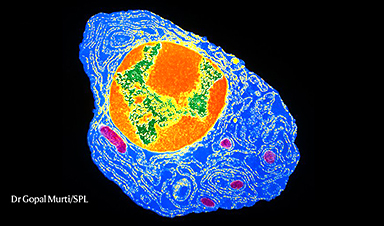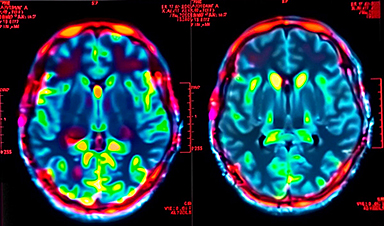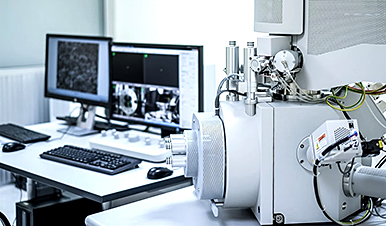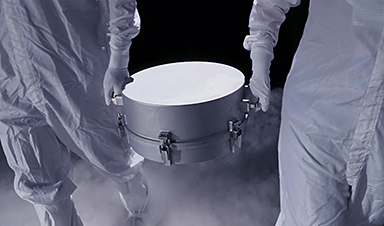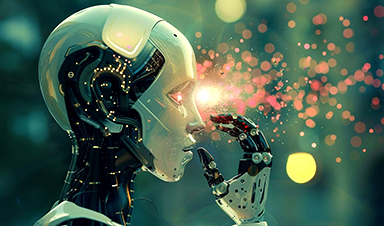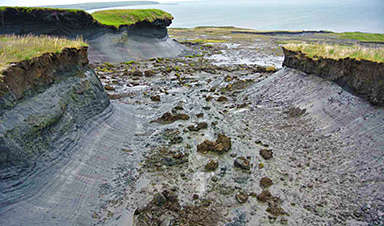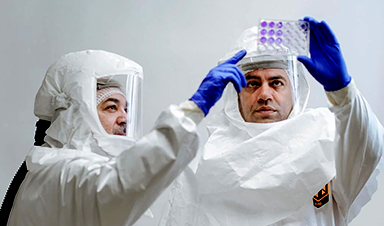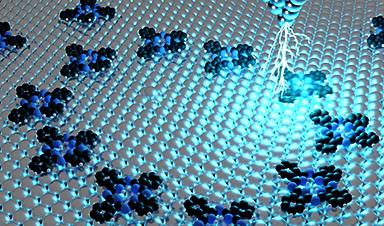People who recover from mild COVID-19 have bone-marrow cells that can churn out antibodies for decades, although viral variants could dampen some of the protection they offer.
Many people who have been infected with SARS-CoV-2 will probably make antibodies against the virus for most of their lives. So suggest researchers who have identified long-lived antibody-producing cells in the bone marrow of people who have recovered from COVID-191.
The study provides evidence that immunity triggered by SARS-CoV-2 infection will be extraordinarily long-lasting. Adding to the good news, “the implications are that vaccines will have the same durable effect”, says Menno van Zelm, an immunologist at Monash University in Melbourne, Australia.
Antibodies — proteins that can recognize and help to inactivate viral particles — are a key immune defence. After a new infection, short-lived cells called plasmablasts are an early source of antibodies.
But these cells recede soon after a virus is cleared from the body, and other, longer-lasting cells make antibodies: memory B cells patrol the blood for reinfection, while bone marrow plasma cells (BMPCs) hide away in bones, trickling out antibodies for decades.
“A plasma cell is our life history, in terms of the pathogens we’ve been exposed to,” says Ali Ellebedy, a B-cell immunologist at Washington University in St. Louis, Missouri, who led the study, published in Nature on 24 May.
Researchers presumed that SARS-CoV-2 infection would trigger the development of BMPCs — nearly all viral infections do — but there have been signs that severe COVID-19 might disrupt the cells’ formation2. Some early COVID-19 immunity studies also stoked worries, when they found that antibody levels plunged not long after recovery3.
Ellebedy’s team tracked antibody production in 77 people who had recovered from mostly mild cases of COVID-19. As expected, SARS-CoV-2 antibodies plummeted in the four months after infection. But this decline slowed, and up to 11 months after infection, the researchers could still detect antibodies that recognized the SARS-CoV-2 spike protein.
To identify the source of the antibodies, Ellebedy’s team collected memory B cells and bone marrow from a subset of participants. Seven months after developing symptoms, most of these participants still had memory B cells that recognized SARS-CoV-2. In 15 of the 18 bone-marrow samples, the scientists found ultra-low but detectable populations of BMPCs whose formation had been triggered by the individuals’ coronavirus infections 7–8 months before. Levels of these cells were stable in all five people who gave another bone-marrow sample several months later.
“This is a very important observation,” given claims of dwindling SARS-CoV-2 antibodies, says Rafi Ahmed, an immunologist at Emory University in Atlanta, Georgia, whose team co-discovered the cells in the late 1990s. What’s not clear is what antibody levels will look like in the long term and whether they offer any protection, Ahmed adds. “We’re early in the game. We’re not looking at five years, ten years after infection.”
News
Does COVID increase the risk of Alzheimer’s disease?
Scientists discover that even mild COVID-19 can alter brain proteins linked to Alzheimer’s disease, potentially increasing dementia risk—raising urgent public health concerns. A recent study published in the journal Nature Medicine investigated whether both mild and [...]
New MRI Study Reveals How Cannabis Alters Brain Activity and Weakens Memory
A massive new study sheds light on how cannabis affects the brain, particularly during cognitive tasks. Researchers analyzed over 1,000 young adults and found that both heavy lifetime use and recent cannabis consumption significantly reduced brain [...]
How to Assess Nanotoxicity: Key Methods and Protocols
With their high surface area and enhanced physicochemical properties, nanomaterials play a critical role in drug delivery, consumer products, and environmental technologies. However, their nanoscale dimensions enable interactions with cellular components in complex and [...]
Nanotech drug delivery shows lasting benefits, reducing need for repeat surgeries
A nanotechnology-based drug delivery system developed at UVA Health to save patients from repeated surgeries has proved to have unexpectedly long-lasting benefits in lab tests – a promising sign for its potential to help human patients. [...]
Scientists Just Found DNA’s Building Blocks in Asteroid Bennu – Could This Explain Life’s Origins?
Japanese scientists detected all five nucleobases — building blocks of DNA and RNA — in samples returned from asteroid Bennu by NASA’s OSIRIS-REx mission. NASA’s OSIRIS-REx mission brought back 121.6 grams of asteroid Bennu, unveiling nitrogen-rich organic matter, including DNA’s essential [...]
AI-Designed Proteins – Unlike Any Found in Nature – Revolutionize Snakebite Treatment
Scientists have pioneered a groundbreaking method to combat snake venom using newly designed proteins, offering hope for more effective, accessible, and affordable antivenom solutions. By utilizing advanced computational techniques and deep learning, this innovative [...]
New nanosystem offers hope for improved diagnosis and treatment of tongue cancer
A pioneering study has unveiled the Au-HN-1 nanosystem, a cutting-edge approach that promises to transform the diagnosis and treatment of tongue squamous cell carcinoma (TSCC). By harnessing gold nanoparticles coupled with the HN-1 peptide, [...]
Global Trust in Science Is Stronger Than Expected – What’s Next?
A landmark global survey conducted across 68 countries has found that public trust in scientists remains robust, with significant support for their active involvement in societal and political matters. The study highlights the public’s [...]
Microplastics in the bloodstream may pose hidden risks to brain health
In a recent study published in the journal Science Advances, researchers investigated the impact of microplastics on blood flow and neurobehavioral functions in mice. Using advanced imaging techniques, they observed that microplastics obstruct cerebral blood [...]
AI Surveillance: New Study Exposes Hidden Risks to Your Privacy
A new mathematical model enhances the evaluation of AI identification risks, offering a scalable solution to balance technological benefits with privacy protection. AI tools are increasingly used to track and monitor people both online [...]
Permafrost Thaw: Unleashing Ancient Pathogens and Greenhouse Gases
Permafrost is a fascinating yet alarming natural phenomenon. It refers to ground that remains frozen for at least two consecutive years. Mostly found in polar regions like Siberia, Alaska, and Canada, permafrost plays a [...]
Frequent social media use tied to higher levels of irritability
A survey led by researchers from the Center for Quantitative Health at Massachusetts General Hospital and Harvard Medical School has analyzed the association between self-reported social media use and irritability among US adults. Frequent [...]
Australian oysters’ blood could hold key to fighting drug-resistant superbugs
Protein found in Sydney rock oysters’ haemolymph can kill bacteria and boost some antibiotics’ effectiveness, scientists discover An antimicrobial protein found in the blood of an Australian oyster could help in the fight against [...]
First U.S. H5N1 Death Sparks Urgency: Scientists Warn Bird Flu Is Mutating Faster Than Expected
A human strain of H5N1 bird flu isolated in Texas shows mutations enabling better replication in human cells and causing more severe disease in mice compared to a bovine strain. While the virus isn’t [...]
AI Breakthrough in Nanotechnology Shatters Limits of Precision
At TU Graz, a pioneering research group is leveraging artificial intelligence to drastically enhance the way nanostructures are constructed. They aim to develop a self-learning AI system that can autonomously position molecules with unprecedented precision, potentially [...]
How Missing Sleep Lets Bad Memories Haunt Your Mind
Research reveals that a lack of sleep can hinder the brain’s ability to suppress unwanted memories and intrusive thoughts, emphasizing the importance of restful sleep for mental health. Sleep deprivation has been found to [...]
